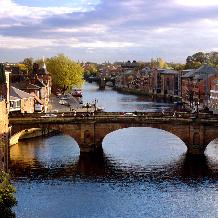The Deliberative Society
Overview
An international conference held at the King's Manor, University of York, United Kingdom 24 - 26 June 2009
Supported by the British Academy and the University of York
Speakers
- James Bohman (Saint Louis)
- Simone Chambers (Toronto)
- Thomas Christiano (Arizona)
- John Dryzek (Australian National University)
- Florence Haegel (Sciences Po, Paris)
- Maarten Hajer (Amsterdam)
- Christian List (London School of Economics)
- Jane Mansbridge (Harvard)
- Aletta Norval (Essex)
- Yannis Papadopoulos (Lausanne)
- John Parkinson (York)
- Graham Smith (Southampton)
- Mark Warren (University of British Columbia)
Audio downloads now available!
Two audio files from what was a fantastic conference are now available for download. The files are:
- Concluding remarks by Jane Mansbridge plus the plenary discussion with all parti (
 43,655kb download) [MP3 file]
43,655kb download) [MP3 file] - Interview with Jane Mansbridge and John Dryzek, conducted by John Parkinson, on (
 19,115kb download) [MP3 file]
19,115kb download) [MP3 file]
Please note, these files are very large, so best downloaded using a high speed broadband connection.
Conference programme
- The Deliberative Society: Conference programme (MS Word
 , 1kb)
, 1kb) - Deliberative Society registration form (MS Word
 , 52kb)
, 52kb)
'Deliberative democracy' has become a dominant, but contested, paradigm in democratic thought, with developments in normative theory, empirical work, and practical experiment happening in isolation. This conference aims to create a new dialogue between the different approaches to identify and consider a set of linked problems concerning the application of deliberative ideals at the large scale, including:
- To what extent is deliberative capacity a property only of small groups or of larger social units or structures?
- To what extent are genuinely deliberative processes conceivable or desirable on larger scales, such as the national or supra-national level?
- How can we identify and evaluate the deliberative qualities of groups and macro political structures?
Venue: The King’s Manor
A seat of Tudor and Stuart government in the north of England, the King's Manor was a fascinating setting for the Deliberative Society conference.
For further details, please contact:
- Matthew Festenstein matthew.festenstein@york.ac.uk
Speakers
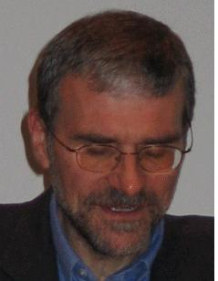 |
James Bohman (St Louis) 'Globalizing public reason: civil society, the public sphere and deliberative governance' |
|
Simone Chambers (Toronto) 'Deliberative democracy and mass democracy (MS Word |
|
|
Thomas Christiano (Arizona) 'The structure of large scale democratic deliberation' |
|
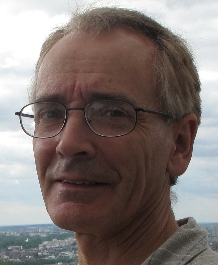 |
John Dryzek (Australian National University) 'Global deliberative society: mapping the governance of climate change' |
|
Matthew Festenstein (York) |
|
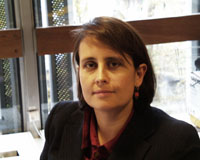 |
Florence Haegel (Sciences Po) 'What political discussion means? Cooperative and conflictive processes at work in French and (French speaking) Belgian focus groups' |
 |
Maarten Hajer (Amsterdam) 'Al Gore and climate change: beyond macro and micro in deliberative democracy' |
|
Christian List (London School of Economics) 'Group communication and the transformation of judgments: an impossibility result (MS Word |
|
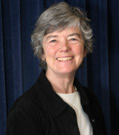 |
Jane Mansbridge (Harvard) University of York Distinguished Visitor and Conference Discussant |
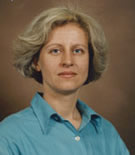 |
Aletta Norval (Essex) 'Deliberation, subjectivity, voice' |
|
Yannis Papadopoulos (Lausanne) 'Deliberative policy-making: how much does it matter? (MS Word |
|
 |
Graham Smith (Southampton) 'Studying democratic innovations: from theory to practice... and back again' |
|
Mark Warren (University of British Columbia) 'Two trust-based uses of mini-publics in democracy (MS Word |
For further details, please contact:
- Matthew Festenstein matthew.festenstein@york.ac.uk
Statement of intent
Conference Outline
'Deliberative democracy' has become a dominant, if contested, paradigm in democratic thought. Political philosophers have investigated the conceptual shape and normative desirability of deliberation, rationality, procedural fairness. Empirical political scientists have explored the forms and availability of deliberation in relation to international negotiations, mediation processes, regional and national legislative processes, and various experimental settings. Among practitioners, the idea of deliberative democracy inspired a surge of experimentation with techniques of public participation in policy making, including citizens' juries, participatory budgeting, electronic town halls, and many other models in environmental, development, health, and planning decisions around the world. Indeed, much empirical work on deliberative democracy has tended to focus on these micro processes, or 'minipublics', and to overlook the larger, macro issues which originally inspired the deliberative democracy project. More generally, political enthusiasm for mechanisms such as citizens’ juries has arguably not kept pace with developing conceptual, normative and empirical research.
This conference aims to move forward the research agenda in this area, bringing together different approaches and identifying a set of linked problems and issues for deliberative democracy. [1] Developments in normative theory, empirical work, and practical experiment have tended to work in parallel, with the logic of specialisation tending to minimise incentives to communicate across disciplinary and subfield boundaries. The first aim of the conference is to encourage reflection on the relationship between these different aspects of the deliberative paradigm. What are the distinctive problems of each approach and institutional translation? [2] The different research traditions raise questions about the appropriate level of analysis in considering deliberative democracy. To what extent is deliberative capacity a property only of small groups or of larger social units or structures? Is it the case that micro processes, on their own, are best used to address relatively micro problems, problems that can be fairly easily defined, with a known and containable number of stakeholders? This seems to be the direction in which deliberative practice is heading, with the focus on limited problem-solving. Is this focus justifiable or does it arbitrarily delimit or even undermine the claims made on behalf of deliberation, that it can address problems of mass political disengagement, social exclusion, the formation of political enclaves and the power of small elites? To what extent are genuinely deliberative processes conceivable or desirable on larger scales, such as the national or supra-national level? [3] How we identify and evaluate the deliberative qualities of groups and structures is related to the analytical framework adopted for study. Social choice theory, more institutional orientations, and approaches grounded in psychology offer different accounts of the character and dynamics of deliberation. These different theoretical approaches in turn suggest different methodologies for investigating deliberation and to some extent different subject matter for inquiry. The third conference objective is to advance debate among these frameworks.
Matthew Festenstein and John Parkinson, November 2008
